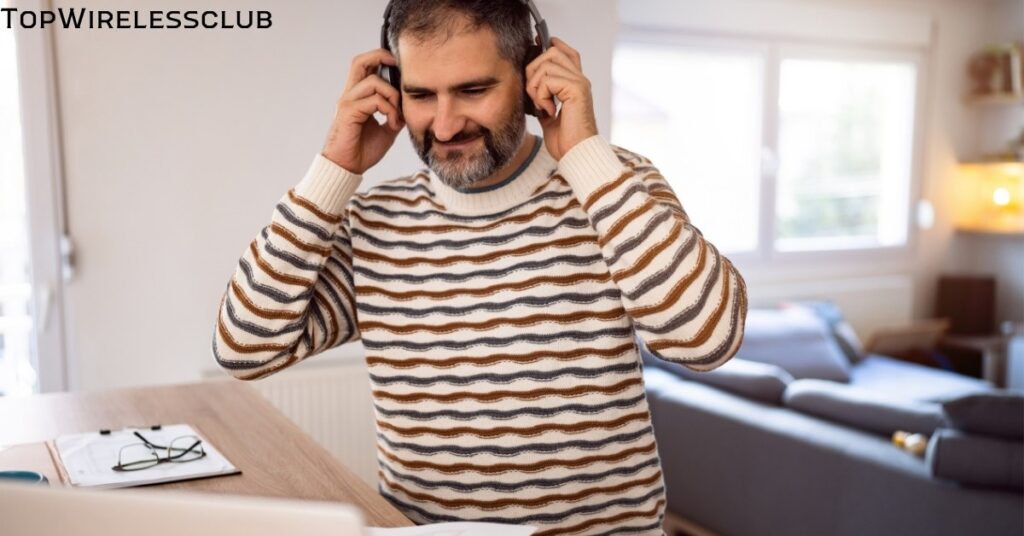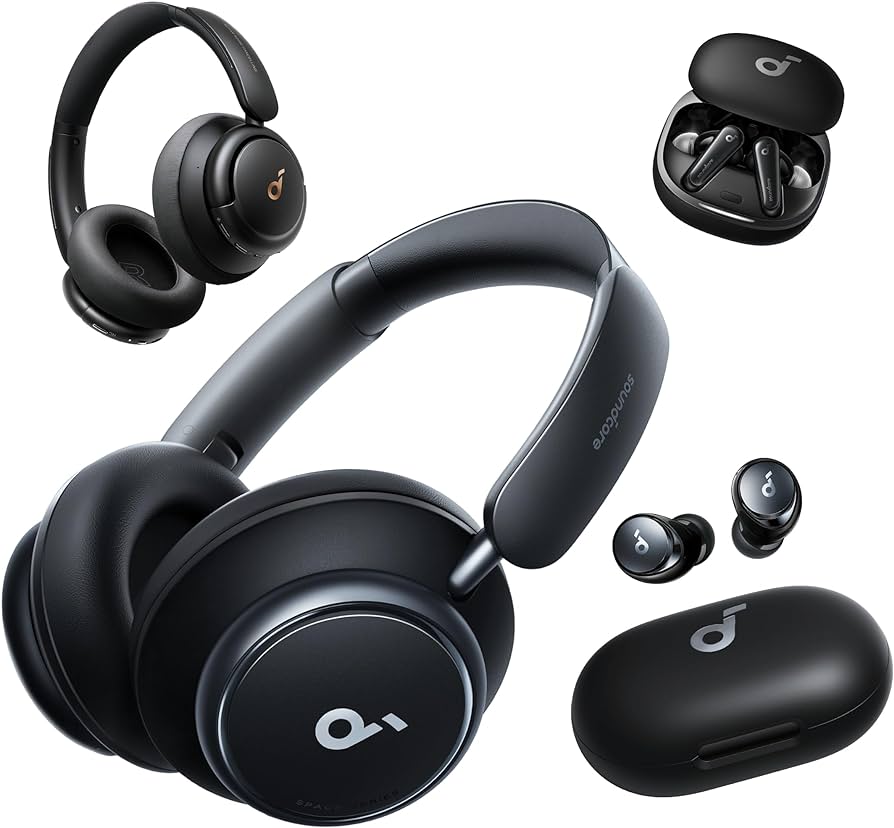Wireless headphones have become extremely popular in recent years, offering convenience and high-quality sound without the hassle of cables. With the Smarter Balanced Assessment Consortium (SBAC) tests becoming a critical part of students’ academic evaluations, many parents and students wonder if wireless headphones are suitable for use during these exams. Considering various technical and practical aspects, this article will explore whether wireless headphones will work during SBAC.

Understanding SBAC Requirements
SBAC Overview
The Smarter Balanced Assessment Consortium (SBAC) assessments are standardized tests administered to students across the United States to evaluate their mastery of state standards in English language arts/literacy (ELA) and mathematics. The tests are designed to provide insights into students’ progress and readiness for college and career paths. Given the importance of these assessments, it’s necessary to ensure that students have reliable tools to help them perform their best.
Headphone Requirements
For many sections of the SBAC, especially those that involve listening tasks or instructions, headphones are essential. Typically, wired headphones have been the go-to choice due to their reliability and ease of use. However, with the rise of Bluetooth technology, wireless headphones present a new option. Understanding the SBAC guidelines is crucial to determine if wireless headphones can be a viable choice for students.
The SBAC has established specific requirements for headphones used during assessments to ensure that all students have an equal testing environment. Headphones need to:
- Provide clear and uninterrupted audio.
- Be compatible with the testing devices (i.e., computers or tablets)
- Have minimal risk of connectivity issues or technical distractions

Advantages of Wireless Headphones
Benefits of Wireless Headphones
Wireless headphones offer several advantages that can enhance the testing experience for students:
- Mobility and Convenience: Wireless headphones free users from the constraints of cables, allowing them to move more freely. It’s particularly beneficial during long testing periods.
- No Tangled Wires: Tangled cords are one of the most frustrating aspects of wired headphones. Wireless headphones eliminate this problem, making them more convenient to use.
- Comfort During Long Testing Periods: Most wireless headphones are designed with comfort in mind, featuring ergonomic designs and soft ear cushions that can be worn for extended periods without causing discomfort.
Technical Features
Wireless headphones come with several technical features that can be advantageous during the SBAC:
- Bluetooth Connectivity: Bluetooth technology enables easy pairing with various devices, offering a seamless audio experience.
- Noise-canceling Capabilities: Many wireless headphones come equipped with noise-canceling features that block out external noise, helping students to focus better during assessments.
Related Google Suggest Keywords:
- “advantages of wireless headphones”
- “wireless headphones for kids”
Compatibility with SBAC
General Compatibility
To determine if wireless headphones will work during SBAC, it is essential to review the SBAC guidelines and evaluate their compatibility with the testing environment.
Review of SBAC Guidelines:
According to the SBAC guidelines for electronic devices, all equipment used during assessments must be reliable and free from technical issues that could disrupt the testing process. While the guidelines do not explicitly ban wireless headphones, they stress the importance of using devices that maintain stable connections and provide uninterrupted audio. Therefore, it is critical to choose high-quality wireless headphones that meet these criteria.
Technical Considerations
When it comes to using wireless headphones during SBAC, several technical considerations need to be addressed to ensure they work effectively:
- Bluetooth Connectivity Stability: The stability of the Bluetooth connection is a significant factor. A weak or unstable connection can cause audio dropouts or disruptions, which can be distracting for students. Ensuring your wireless headphones have a solid Bluetooth connection is vital.
- Battery Life During Assessments: SBAC assessments can last several hours, and the last thing a student needs is for their headphones to run out of battery mid-test. Choosing wireless headphones with a robust battery life (at least 8-10 hours on a single charge) will help avoid this issue.
- Pairing Issues and Troubleshooting: Pairing wireless headphones with testing devices should be straightforward. However, compatibility issues can arise, disrupting the testing process. Testing the pairing process beforehand and knowing basic troubleshooting steps can mitigate these risks.
Practical Tips
Choosing the Right Wireless Headphones
Selecting the right wireless headphones ensures they work effectively during SBAC assessments. Below are several features to consider:
- Battery Life: Given the length of SBAC assessments, battery life is an essential factor. Look for headphones that offer at least 8-10 hours of continuous use.
- Comfort: Since students will wear headphones for extended periods, comfort is paramount. Search for ergonomic designs with soft ear cushions and adjustable headbands.
- Noise Cancellation: Noise-cancelling capabilities can help students focus better by reducing background noise. This feature is particularly beneficial in a busy testing environment.
- Ease of Use: Choose headphones that are easy to pair and operate. Complicated controls can be a distraction during tests.
Recommended Models:
- Sony WH-1000XM4: Known for its exceptional noise-cancelling features and long battery life.
- Bose QuietComfort 35 II: Offers excellent comfort and sound quality.
- Jabra Elite 85h: Provides great sound, comfort, and superb battery life.
Testing Before SBAC
Before the actual assessment, it’s crucial to conduct a test run with wireless headphones to ensure compatibility and functionality:
- Conduct a Practice Session: Have the student use wireless headphones during a practice test session to check for connectivity issues or distractions.
- Confirm Compatibility: Verify that the headphones pair easily with the testing device and maintain a stable connection throughout the session.
- Troubleshooting: Familiarize yourself with basic troubleshooting steps for common issues such as connectivity problems or unresponsive headphones.
Pros and Cons
Pros
- Comfort and Freedom of Movement: Wireless headphones eliminate the hassle of cords, providing greater freedom of movement and superior comfort during long testing sessions.
- High-Quality Audio Experience: Many wireless headphones deliver excellent sound quality and noise-canceling capabilities, enhancing the overall testing experience.
Cons
- Potential Connectivity Issues: Bluetooth connectivity can sometimes be unstable, leading to audio dropouts or disruptions during the test.
- Battery Management: Managing battery life is crucial. Students could face significant interruptions or distractions if the headphones run out of battery mid-test.
FAQs
Are wireless headphones allowed during SBAC testing?
Yes, wireless headphones are generally allowed during SBAC testing, but they must meet the SBAC guidelines for reliability and uninterrupted audio. Students should verify with their school or testing center if there are specific restrictions or recommendations regarding headphone use during the assessments.
What should I look for in wireless headphones to use during SBAC assessments?
When choosing wireless headphones for SBAC assessments, consider the following features:
- Battery Life: Ensure the headphones have a long battery life, at least 8-10 hours.
- Comfort: Look for ergonomic designs with soft ear cushions and adjustable headbands to avoid discomfort during long testing periods.
- Noise Cancellation: Noise-cancelling features can help block background noise, allowing students to focus better.
- Ease of Use: The headphones should be easy to pair with the testing device and have simple controls to avoid distractions.
How can I test my wireless headphones to ensure they work well for SBAC?
To test your wireless headphones before SBAC:
Prepare for Troubleshooting: Familiarize yourself with basic troubleshooting steps for common issues like connectivity problems or unresponsive headphones to ensure a smooth testing experience.
Conduct a Practice Session: Use the headphones to check for connectivity issues or distractions during a practice test.
Ensure Compatibility: Verify that the headphones pair easily with the testing device and maintain a stable connection throughout the session.
Conclusion
To answer the question, “Will wireless headphones work during SBAC?” the answer is yes, provided they meet specific criteria. Wireless headphones offer numerous advantages, including comfort, mobility, and high-quality audio. However, addressing potential connectivity issues and ensuring sufficient battery life is essential.
Based on the pros and cons outlined, students and parents should consider testing wireless headphones before SBAC to confirm their reliability. If these headphones maintain a stable connection and provide uninterrupted audio, they can be beneficial during the SBAC assessments.
Call to Action
We encourage students and parents to share their experiences using wireless headphones during SBAC. Your feedback and insights can help others make informed decisions and prepare effectively for these critical assessments. Feel free to share this blog post with friends and family who are preparing for SBAC.
